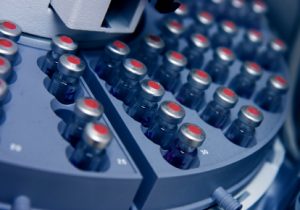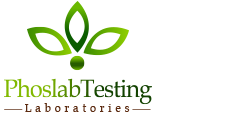- HOME
- Services
- Environmental Testing
- BTEX Testing Services
- Volatile Organic Compound (VOC) Testing
- Total Recoverable Petroleum Hydrocarbons Testing and Analysis
- Pesticide Testing and Analysis
- Polycyclic Aromatic Hydrocarbons Testing
- Hazardous Waste
- Wastewater Testing
- Soil Testing
- TCLP Testing
- SPLP Testing
- RCRA Metals TCLP Analysis
- Agriculture Testing Laboratory
- Brownfield Testing Laboratory
- Mineral Testing Laboratory
- Chemical Testing Laboratory
- Field Sampling
- Phoslab Environmental Consulting
- Resources
- About Us
- Contact Us
- PhosBlog
Heterotrophic Plate Count (HPC) Testing
Phoslab Environmental Testing Services
 Phoslab Environmental Laboratories offers high quality environmental and water testing services, including HPC testing. We are based out of Central Florida where we have been providing accurate lab analysis since 1965. Heterotrophs are broad microorganisms that include yeast, mold, and bacteria. Heterotrophs can be difficult to measure without the proper equipment and methodology because there is no direct way for testing the culture count. A low Heterotrophic Plate Count (HPC) is best for clean drinking water.
Phoslab Environmental Laboratories offers high quality environmental and water testing services, including HPC testing. We are based out of Central Florida where we have been providing accurate lab analysis since 1965. Heterotrophs are broad microorganisms that include yeast, mold, and bacteria. Heterotrophs can be difficult to measure without the proper equipment and methodology because there is no direct way for testing the culture count. A low Heterotrophic Plate Count (HPC) is best for clean drinking water.
What are Heterotrophs?
Heterotrophs are organisms that cause diseases, also known as pathogens. There are many different types of pathogens, such as bacteria, viruses, protozoan parasites, yeast, mold, and other organisms. To determine whether microorganisms need to be removed from water, a sample of the water is put through a variety of simple culture-based tests. This method is known as “heterotrophic plate count” or “heterotroph test” procedures.
Regulatory Limits for HPC
When is comes to regulatory limits, The National Primary Drinking Water Regulation (NPDWR) sets the standards and also determines treatment techniques used on water. This regulation applies to public water systems and is legally enforceable.
Due to the Safe Drinking Water Act, The Environmental Protection Agency (EPA) is required by law to determine the level of contaminants in drinking water to make sure that no harmful health effects are likely to occur. As far as HPC is concerned, The Environmental Protection Agency states that there must not be an HPC count equal to or in excess of 500 bacterial colonies per milliliter.
Indicators for HPC
Along with HPC there are other microbial and water safety indicators. These indicators including turbidity, total coliforms, and fecal indicator bacteria. Measuring turbidity levels is an important test in water quality. Turbidity is pollution that is caused by many tiny particles that are invisible to the naked eye, and which forms into a cloudy or foggy fluid.
Total coliforms and fecal coliforms are related to each other. While total coliforms are bacteria that are found in the soil, fecal coliforms are a group of total coliforms that are typically present within the gut and feces of animals. These bacteria found in the soil are influenced by surface water.
Fecal contamination in water can be detected by indicator bacteria. These bacteria are not harmful to human health, but are used to check the levels of contamination or other health risks. About 100 billion bacteria can be found in a gram of human feces.
All in all, these other indicators, like HPC, are ways in which a problem in water quality can be detected. It can be a chemical, physical, or some other type of parameter that is found to be outside regulatory limits. If found to be outside regulatory limits, then it is possible that there was a problem within the treatment process.
Is HPC Testing Important?
The EPA and World Health Organization regulate water safety and make recommendations regarding drinking water contamination. It is important for suppliers to routinely monitor their water supply and check if it is within regulatory limit guidelines. If pathogens are detected, or if indicators levels are in violation of regulatory limits, then steps must be taken to improve current treatment. This may include disinfecting so that status returns to normal, or installing new filtration systems.
In order to avoid risk to public health, suppliers may need to advise customers to boil their water before drinking it, or provide some other alternative. Therefore, to avoid any unnecessary cost or additional work, as well as to reduce health risk, routine monitoring of water quality is important.
Heterotrophic Plate Count (HPC) Testing in Florida
Phoslab Environmental Laboratories employs expert lab technicians who carefully analyze and test water samples for heterotrophs through the Heterotrophic Plate Count. Our experienced personnel are committed to providing fast and accurate results that you can rely on. Call today to learn about our HPC testing services.
More info on HPC water testing:
- WHO, Indicators of microbial water quality, http://www.who.int/water_sanitation_health/dwq/iwachap13.pdf
- WHO, Heterotrophic Plate Count Measurement in Drinking Water Safety Management, http://www.who.int/water_sanitation_health/dwq/WSH02.10.pdf
